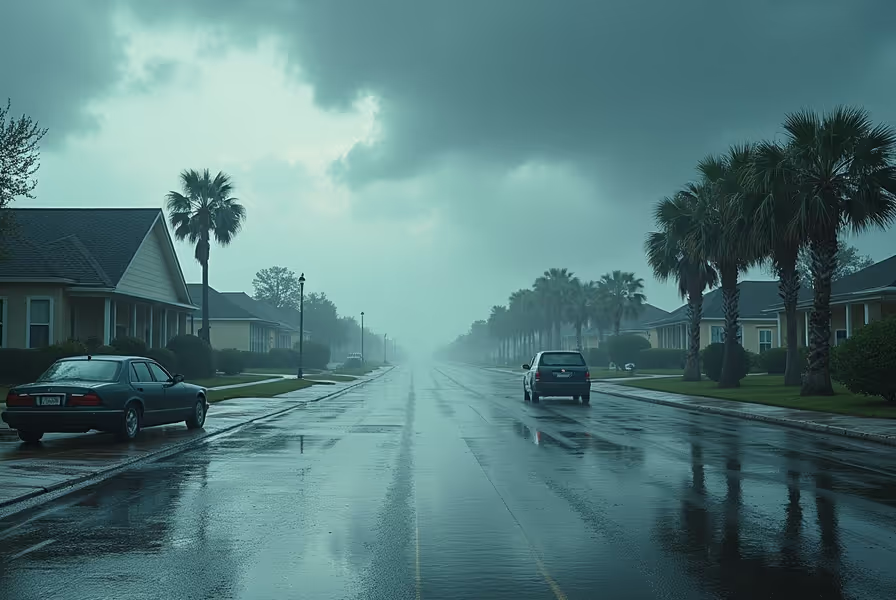Understanding the Hurricane Season Timeline in South Carolina
South Carolina’s coastal beauty comes with unique weather challenges. If you live in or plan to visit the Palmetto State, it’s important to know when hurricane season starts and what you can expect. Understanding hurricane risk helps you stay prepared and safe when storms threaten the region.
Official Hurricane Season Dates for South Carolina
The Atlantic hurricane season officially runs from June 1 through November 30 each year. This is the time when tropical storms and hurricanes are most likely to threaten South Carolina’s coastline and inland areas. Historically, the highest risk period for hurricanes in South Carolina is between August and October.
- Start of Season: June 1
- Peak Activity: August to late October
- End of Season: November 30
The season’s peak in September brings the highest likelihood for hurricane impacts. During this month, ocean temperatures are warmest, fueling strong storms.
Why Do Hurricanes Affect South Carolina?
South Carolina’s position along the Atlantic coast places it in the path of many tropical systems. Warm Atlantic waters and favorable weather patterns can steer hurricanes toward its iconic beaches and historic cities, from Myrtle Beach and Charleston to Hilton Head Island.
Key factors that make South Carolina vulnerable include:
- Proximity to hurricane paths in the Atlantic Ocean
- Warm summer sea temperatures
- Flat, low-lying geography along the coast
- Influence of the Gulf Stream common during hurricane season
Recent South Carolina Hurricane History
South Carolina has experienced direct impacts from many hurricanes and tropical storms. Some of the most notable hurricanes to make landfall or affect the state include:
- Hurricane Hugo (1989) – Caused widespread destruction, still remembered throughout the state
- Hurricane Matthew (2016) – Brought severe flooding and strong winds to the coast
- Hurricane Florence (2018) – Produced record rainfall and historic flooding
- Hurricane Dorian (2019) – Brushed the coastline, causing storm surge and wind damage
The frequency and strength of hurricanes can vary each year, but South Carolina remains watchful, especially as the peak season approaches.
How to Prepare for Hurricane Season in South Carolina
Preparedness is crucial for anyone living in or visiting hurricane-prone areas. As hurricane season arrives, follow these steps to minimize risks and protect your family:
- Monitor Weather Alerts: Sign up for local notifications and use NOAA Weather Radio.
- Review Evacuation Zones: Know your hurricane evacuation routes and have a plan.
- Build an Emergency Kit: Include water, food, medications, flashlights, batteries, and important papers.
- Secure Property: Install storm shutters, trim trees, and clear gutters to reduce risk.
- Check Insurance: Ensure your home and flood insurance policies are updated before the season.
Planning in advance helps you respond quickly if a storm threatens South Carolina.
When Do Most Hurricanes Hit South Carolina?
The greatest likelihood for hurricane impacts is in late summer and early fall. Data from the National Hurricane Center shows that most hurricanes hitting South Carolina occur:
- From mid-August through early October
- Around the peak, which is statistically September 10
This period brings warmer sea surface temperatures and more active weather patterns in the Atlantic, increasing the odds of hurricane formation and landfall.
Common Hurricane Season Myths for Coastal South Carolina
Misconceptions about hurricanes can lead to risky decisions. Here are some common myths:
- “Hurricanes only strike coastal areas.” – Even inland areas can face storm surge, heavy rainfall, and tornadoes.
- “We only need to prepare during the peak month.” – Hurricanes can occur anytime from June to November.
- “A tropical storm isn’t dangerous.” – All tropical systems can cause severe flooding, wind, and damage.
Tips for Travelers: Visiting South Carolina During Hurricane Season
Tourism peaks in summer and fall, overlapping with hurricane season. If you plan a trip to South Carolina between June and November, keep these tips in mind:
- Purchase travel insurance that covers weather-related cancellations.
- Watch weather forecasts closely before and during your stay.
- Know the emergency plans and evacuation routes at your lodging.
Being aware ensures your vacation is both enjoyable and safe.
Frequently Asked Questions: Hurricane Season in South Carolina
When is the peak of hurricane season in South Carolina?
Peak hurricane season in South Carolina falls between mid-August and early October, with September as the most active month for storms. This is when ocean conditions most favor the development of hurricanes and tropical storms along the Atlantic coast.
How likely is it for a hurricane to hit South Carolina?
South Carolina experiences direct hurricane strikes about once every seven years on average. However, the state routinely faces threats from weaker tropical storms, heavy rainfall, and tornadoes caused by hurricanes and their remnants.
What should I do to prepare for hurricane season in South Carolina?
Prepare for hurricane season by making an emergency kit, reviewing your evacuation plan, staying informed with weather alerts, updating insurance, and securing your home. Make these preparations before the season starts and revisit your plans regularly as storms develop.
Are hurricanes only a risk for the South Carolina coast?
No, hurricanes and tropical storms can impact inland areas as well. Heavy rainfall, flooding, and severe winds are possible far from the coast. Residents statewide should prepare for the hurricane season every year.
Can I visit South Carolina during hurricane season?
Yes, you can visit during hurricane season. However, check forecasts before travel, consider trip insurance, and be flexible with your plans in case of severe weather. Most days during the season are clear and sunny, but it’s important to stay weather-aware.
Staying Safe and Informed During the Hurricane Season
Staying informed is your best defense during hurricane season in South Carolina. Regularly check local news, weather channels, and official guidance from the National Weather Service. Preparedness, awareness, and timely action can help you protect your loved ones and property during storm threats.
Whether you’re a resident or a visitor, a clear understanding of the hurricane season gives you peace of mind and confidence to enjoy all that South Carolina has to offer.









.svg)



